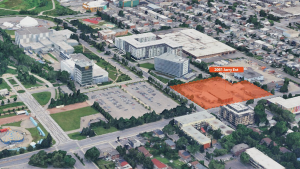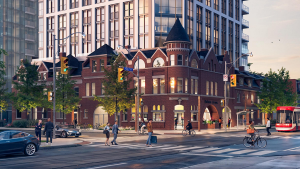New legislation introduced recently by the provincial government to reduce the cost of building and speed up construction of new homes is a step in the right direction and adopts many of the ideas that builders across Ontario have been proposing over the past couple of years.
The changes will cut red tape, streamline approvals and tackle other issues that add to the cost of a new home, steps that are critical to getting the residential construction industry back on track.
In light of the dire housing supply and affordability crisis that we are facing, the legislative changes will simplify the approvals process and make the homebuilding process more efficient.
We’re in the midst of the most intense challenge facing the homebuilding sector in decades and nothing short of significant and collaborative effort can assist in turning this situation around.
The legislation, known as the Protect Ontario by Building Faster and Smarter Act, 2025, will simplify and standardize development charges (DCs) levied by municipalities to pay for infrastructure that supports new developments.
We have been calling on municipalities to work to reduce the impact of DCs, as they raise the price tag of a home and are ultimately paid by consumers. The legislation will also permit developers to remit DC payments at the point of occupancy instead of much earlier in the planning approvals process. This is helpful because developers will not be out of pocket for the DCs.
Thankfully, the legislation will bring transparency to development applications and place limits on how many studies a municipality can request from a homebuilder.
In another positive move, the bill will allow the minister of infrastructure to issue MZOs and exempt transit-oriented communities from zoning and planning rules governed by local towns and cities. This is vital as it will ensure that projects don’t get held up by local regulations.
Additionally, the legislation proposes to immediately add $400 million to the Housing-Enabling Water Systems Fund and the Municipal Housing Infrastructure Fund. Over four years, that will bring the total commitment to nearly $2.3 billion across both funds.
Importantly, the changes will also make the Ontario Building Code the province-wide agreement for construction, which means no surprise add-ons by municipalities.
All these changes are warranted and necessary if we want to bring down the cost of housing and build new homes.
Ontario is struggling to meet its goal of building 1.5 million homes by 2031. The glacial planning approvals process and exorbitant tax burdens are major causes.
Last year, a report done by the Canadian Centre for Economic Analysis revealed the tax and fee burden in Ontario averages almost 36 per cent of the purchase price of a new home — up from 31 per cent three years earlier. Hikes in DCs accounted for a big chunk of that increase.
The problem is causing many of our best and brightest to leave Ontario because they can’t find affordable homes. According to the latest statistics, 8,094 young adults left Ontario in 2024 while Alberta gained 18,413.
Data published recently by the Canada Mortgage and Housing Corporation showed housing starts in Ontario in March were down 46 per cent, year over year, for communities with 10,000 or more people.
In Toronto, meanwhile, housing starts in March declined 65 per cent over the same month in 2024. The condo market has been hard hit, particularly in the Greater Toronto and Hamilton Area.
In the City of Toronto, where the average home price is $1,074,000, an individual or family would need an income of $217,000 to buy a home, according to the Canadian Real Estate Association.
With so many challenges facing the residential construction industry, these changes are welcome news.
The fact of the matter is that we’re not building enough housing, in large part due to the tax burden and bureaucratic headwinds that stymie development.
Given the extent of the housing situation and tariffs caused by the U.S.-led trade war, bold action is needed. Hopefully, this legislation gets the ball rolling.
Richard Lyall is president of the Residential Construction Council of Ontario. He has represented the building industry in Ontario since 1991. Contact him at media@rescon.com.











Recent Comments